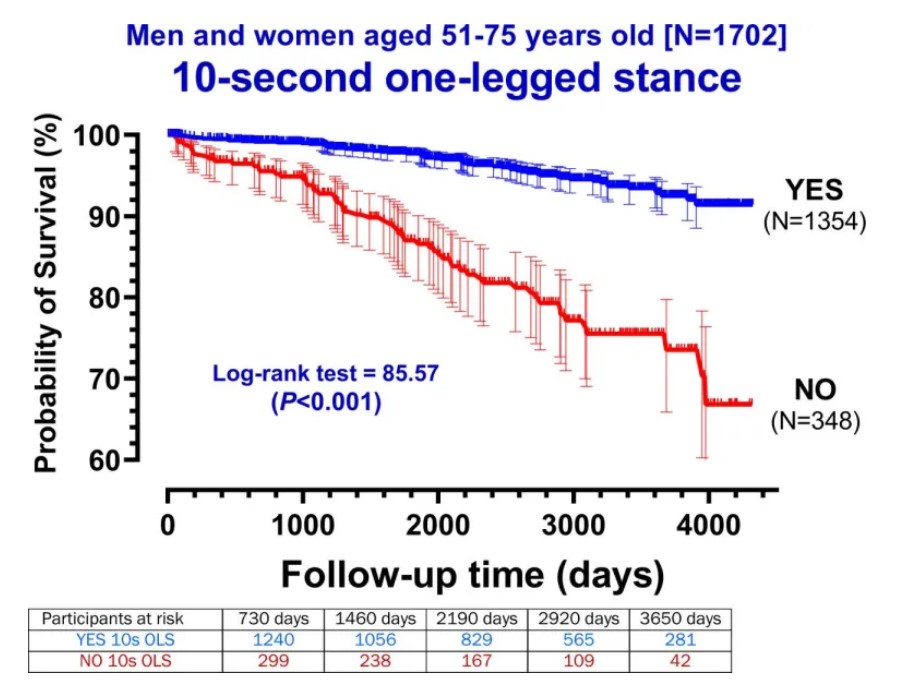Balance isn’t often assessed during regular health screenings for older adults, but a recently published study suggests that it should be. The international team of researchers behind it found that adults aged 51-75 who were unable to balance on one foot for ten seconds had an 84% higher risk of death than their peers who could, even after adjusting for age, sex, body mass index, and comorbidities like heart disease, hypertension, and diabetes.
The research was published in the British Journal of Sports Medicine.
A long-running study
Just over 1,700 Brazilian adults took part in the study as part of the long-running CLINIMEX Exercise Cohort. Each subject underwent a fairly standard physical exam, with the addition of a very rudimentary balance test. They were asked to stand barefoot on a flat platform with their arms at their side and their gaze fixed looking forward. They were then given three attempts to balance on a foot of their choosing for at least ten seconds. A physician or nurse assistant stood in close proximity to steady the subject should they start to fall.
After the exam, researchers followed subjects over a median duration of seven years. No participants dropped out of the study.
The scientists found that subjects’ ability to complete the balance test dropped off rapidly after age 60. While roughly 95% of participants aged 51 to 55 could balance on one leg for ten seconds, only 82% aged 61 to 65 could. Just 46% of people aged 71 to 75 were able to complete the test.

Given that older people were more likely to fail the test, it’s unsurprising that falling was associated with a higher likelihood of mortality — almost five times as likely, the researchers found. But when matching subjects based on age and rooting out confounding variables like obesity and other health problems, the result still held strong. Failure to balance on one leg for ten seconds was linked to an 84% higher risk of all-cause mortality.
Predictors of death
Other physical tests like this have been previously found to be useful predictors of death. For example, studies consistently show that older adults with the greatest hand-grip strength, used as a proxy for overall physical strength, live longer and have a much lower risk of death than older adults with weaker hand-grip strength.
Taken together, these results seem to suggest that superior physical fitness in older age offers benefits beyond just heart health and improved metabolism. Something else beneficial could be going on biologically.
Another explanation the researchers did offer for the disparity in death risk is that individuals with better balance might be less likely to fall. “Each year an estimated 684,000 individuals die from falls globally,” they noted. And even if a fall doesn’t directly result in death, it certainly can lead to physical or cognitive disability, which could drastically reduce life expectancy.
The researchers noted that the balance test was “remarkably safe, well-received by the participants, and importantly, simple to incorporate in our routine practice as it requires less than one or two minutes to be applied.”
Given that it has been shown to be a powerful predictor of death in older adults, doctors may want to consider making it part of regular physical exams.
This article was reprinted with permission of Big Think, where it was originally published.






